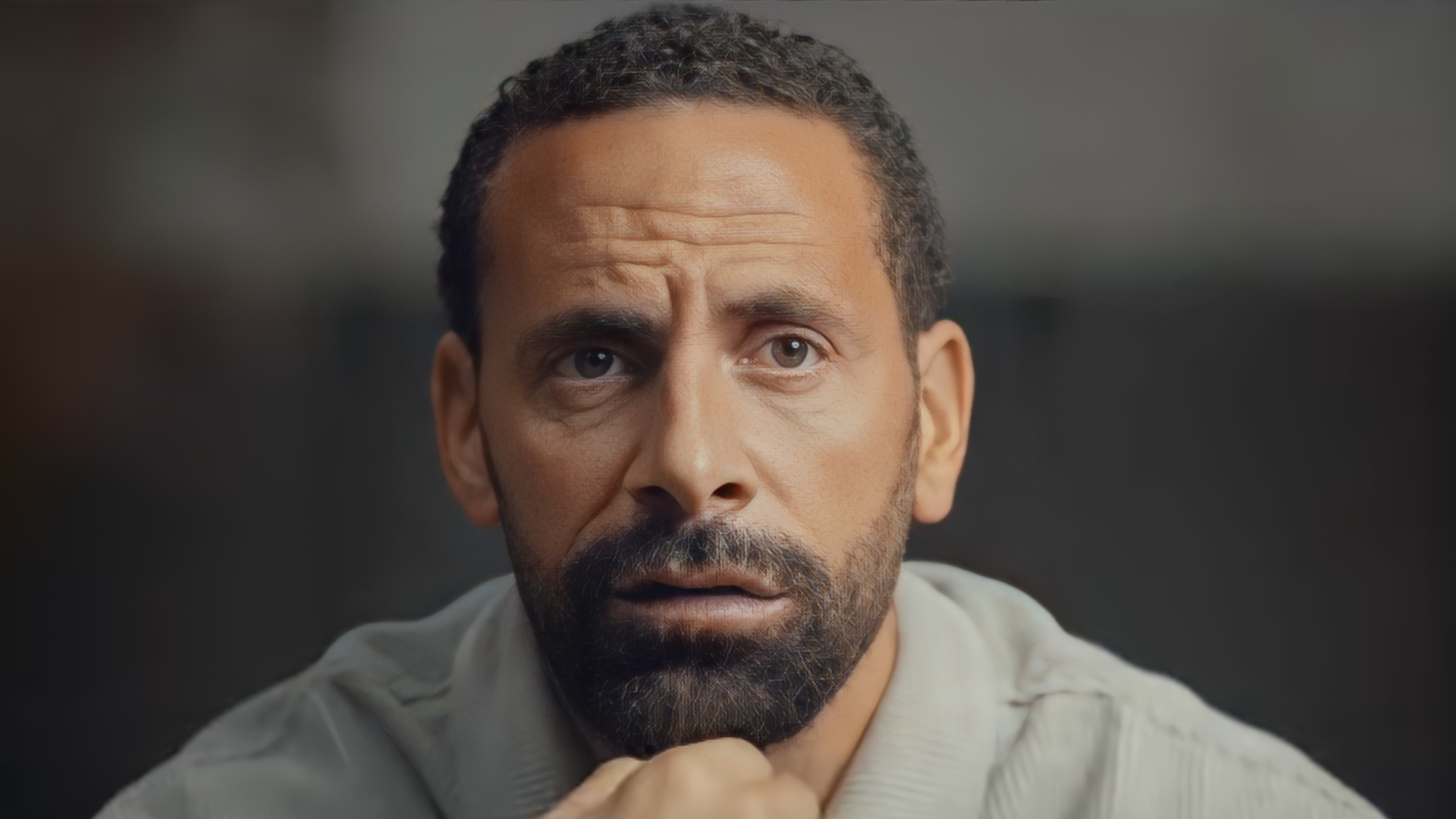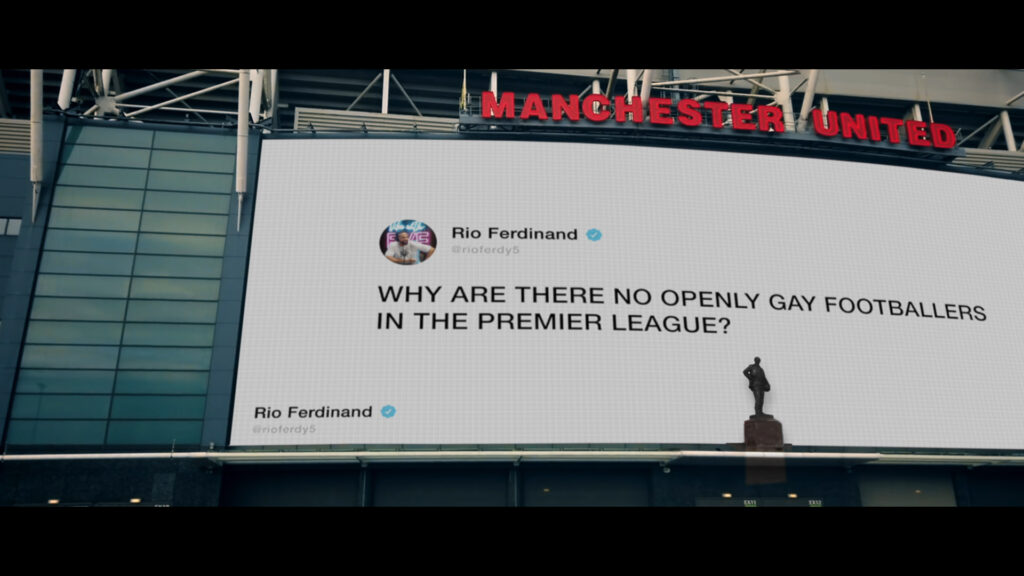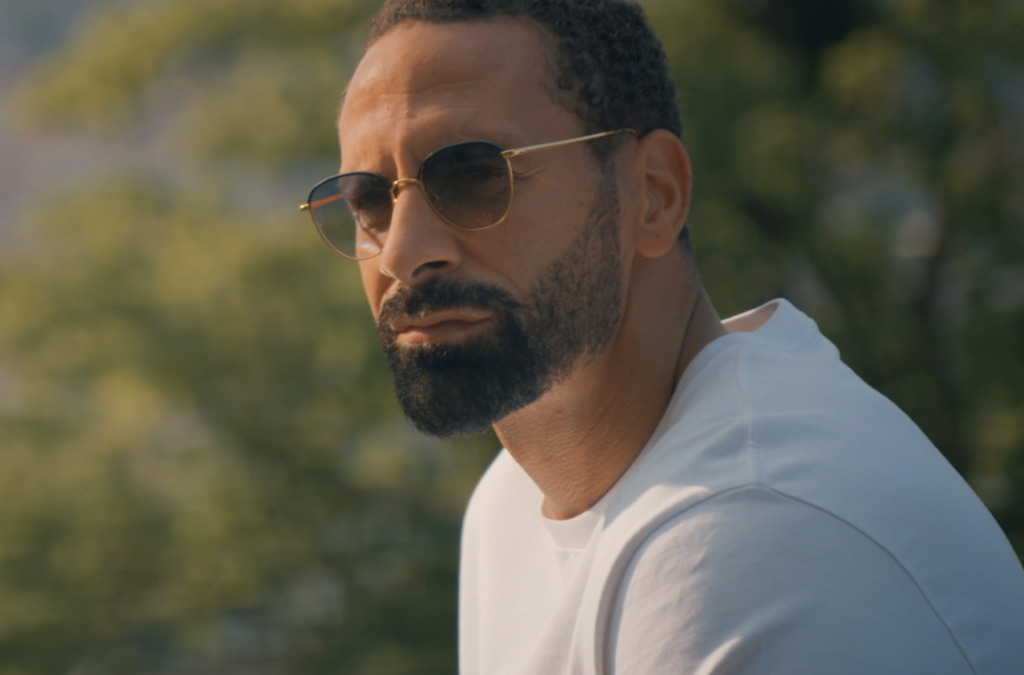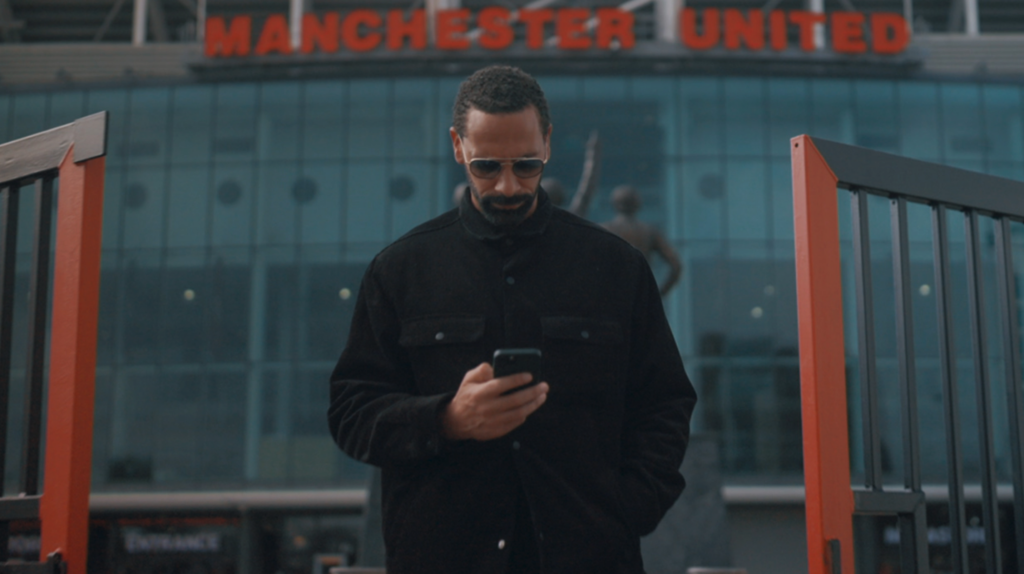Rio Ferdinand decries the ‘witch hunt’ for a gay Premier League footballer
Exclusive: Ahead of the release of his new documentary, the former England player discusses homophobia and football.

The former England player, Rio Ferdinand says the “witch hunt” for an openly gay Premier League footballer is the wrong way to counter homophobia in football.
Ferdinand heads up a new three-part documentary, Rio Ferdinand’s Tipping Point on Prime Video where he looks at the issues of racism, mental health, and sexuality in the sport.
Speaking exclusively to Attitude ahead of the series’ release, Rio shares his thoughts regarding the question at the heart of the episode on sexuality: is the Premier League ready for an openly gay football?
“I think the evidence shows, not yet,” he laments. “Obviously, no one feels that it’s a safe place to come out into at the moment.”
He explains his view on the validity of the question changed after he started filming.
“I quickly understood after speaking to a few people that that question is probably one of the questions that prevent people coming out because it creates a witch hunt. It creates a ‘Where is that person? Let’s go and find them’.”

This, Ferdinand thinks, is only deterring people from coming out. He also reasons, “not everybody is equipped or built to be the person that is then under the spotlight. And [that] everyone’s asking the questions to.”
The day Attitude spoke to Rio, Australian footballer Josh Cavallo, who features in the documentary, marked a year since he came out as gay, then becoming the only openly gay footballer at the top level of football.
“He was really open and his experience is going to be liberating for so many people,” Rio says of his chat with Josh. “The positive impact of his coming out, not only from a mental health point of view but also for his football, he feels it has allowed him to play better. Being able to go out and feel free has been something that he didn’t anticipate but has felt.”
Rio goes on to add that as more footballers come out it will have a knock-on effect, likening it to him seeing more Black players when he was growing up. “[They] made it possible for me to dream that I could be that person and go for that dream. I think sexuality will be the same.”
Seeing Jake Daniels and Zander Murray come out, inspired by Josh, should only encourage others, Rio thinks.
Instead of the “witch hunt” Rio advocates a softer approach focusing on the culture of football.

Through his discussions in the documentary with the likes of Thomas Hitzlsperger, players, and club managers of all levels, Rio identifies that changing locker room banter will help set the tone for the rest of the sport.
“I could be someone who’s gay in that changing room,” suggests Rio. “And I could be really close to feeling comfortable to come out because the culture seems quite conducive to that. And then one person could say one comment and that stops me from coming out. And so the culture and the language is hugely important.”
A particularly eye-opening experience for Rio was travelling to Los Angeles to visit the home of the baseball team, the Dodgers. Speaking to Erik Braverman from the team’s communications team Rio discovers how if a club fosters a welcoming atmosphere at all levels, everyone benefits.
He tells Attitude that football clubs here need to follow suit. “The clubs have to speak like this. I think they’re such powerhouses in driving culture, that if they speak the right way from all levels of the club, then it’s a great step in the right direction.”
Rio also shares with Attitude that of the three topics discussed in the documentary, sexuality was the one he was least comfortable with and the one he learned the most about.
“I was scared to trip up on language,” he shares candidly of his meetings with members of the LGBTQ community. “I was walking on eggshells, because I didn’t want to say the wrong thing. It was quite a daunting experience.
“Even the word queer. I don’t know. When I heard someone who was gay say it I had to ask the question. That’s a big thing I learned as well, don’t be scared to ask questions and to educate yourself.”
Chatting about why football is much further along in the conversation around racism compared with homophobia, Rio thinks it’s because conversations have taken place over a longer period of time. Therefore, people are more familiar with it.
“There’s a little bit more of an understanding of it. But my point about that is that not knowing brings fear. Fear might be too strong a word, but definitely apprehension and nervousness. If that happens to most people, you don’t talk, then you just shut off and go ‘I’m not gonna say anything. I’d rather not say anything don’t get vilified for it’.

But Rio hopes that he is enough of a draw for people – be they fans, players, or anyone at all – who may be unfamiliar with LGBTQ issues in football to watch and learn.
“I’m aware that with these topics, some people might not necessarily engage but because they follow me or like football they may take an interest and if you can move the dial in that way then it’s definitely a positive.”
Turning to the FIFA World Cup, which will be taking place in Qatar this year, a country where homosexuality is still illegal and can land some up to three years in prison or a death sentence under Sharia law, Rio says a country like Qatar needs to be educated.
“I think we all know what’s right and wrong and I think it’s about setting the right culture. As much as I don’t agree with certain aspects of loads of countries around the world, I look at our country, and we’re not perfect either. So, we need to get our own house in order as well. But we can also still drive good culture, good habits, and good practice in other places as well.”
On what impact a player coming out during the World Cup would have on football Rio affirms, “It’s down to the individuals, isn’t it? I wouldn’t want to be part of that witch hunt because my experience tells me that that isn’t the right way to go.
“If someone deems it the right place to do it, then great they can do it and how it plays out will play out. But I think if the environment is built around these clubs and around football for people to feel comfortable, then wherever it is, will be the right time.”
Rio Ferdinand’s Tipping Point launches on 11 November exclusively on Prime Video.
